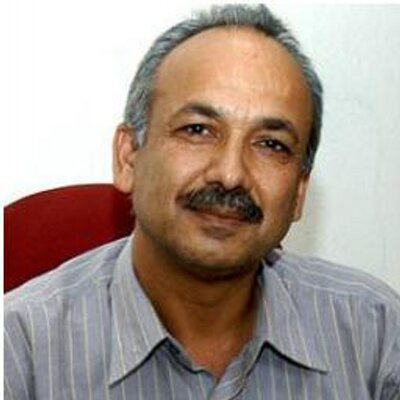 By Yubaraj Ghimire (4 April, 2016) – Prime Minister K.P. Sharma Oli seemed happy at the end of his week-long visit to China, exactly a month after his trip to India. Nepal and China signed a series of agreements, from undertaking feasibility studies on railway connections to exploring oil and gas deposits in Nepal. The two sides also signed a trade and transit agreement, and are to undertake a feasibility study for a free trade agreement. Nepal also became a dialogue partner in the Shanghai Cooperation Organisation.
By Yubaraj Ghimire (4 April, 2016) – Prime Minister K.P. Sharma Oli seemed happy at the end of his week-long visit to China, exactly a month after his trip to India. Nepal and China signed a series of agreements, from undertaking feasibility studies on railway connections to exploring oil and gas deposits in Nepal. The two sides also signed a trade and transit agreement, and are to undertake a feasibility study for a free trade agreement. Nepal also became a dialogue partner in the Shanghai Cooperation Organisation.
Both sides had avoided formalising these issues in the past as they agreed China couldn’t substitute India in Nepal, given the latter’s “India-locked status”, open border and long history of a symbiotic existence. But the five-month long blockade Nepal suffered after promulgating its constitution and India’s visible international isolation apparently contributed to Kathmandu looking the other way.
“We cannot compare one neighbour with another,” Oli said on his return. Chinese President Xi Jinping favoured “trilateral” cooperation for the common prosperity of Nepal, India and China. But all these amounted to suggesting that China no longer accepts India’s lead role in Nepal and the backseat for itself. It’s also a disapproval of and an outcome of the role India played in open alliance with the West, advocating radical political changes in Nepal.
But there’s also a palpable fear among Nepal’s masses about how India might respond to the aftermath of Oli’s “successful” China visit. A possible blockade, reduction in oil and gas supplies, and obstruction of Nepal’s access to the sea? After all, what has been agreed upon in Beijing will take years to fructify, and any hostile response from India will bring immediate hardship upon the people of Nepal. To dispel that fear, the existing trust deficit between the two countries with “special relations” needs to be addressed.
Indian Ambassador Ranjit Rae said Prime Minister Narendra Modi’s two visits to Nepal, soon after he took office, were proof of how much importance India attached to its relations with the northern neighbour. However, the fact that it took 17 years for an Indian PM to undertake a bilateral visit to Kathmandu also showed unprecedented abdication or apathy. In fact, the most critical decisions by India, such as supporting Nepal’s Maoists and bringing them in as key players, as well as abolishing the monarchy without assessing consequences, were taken during those years.
China is known for consistently dealing only with the Nepal government, whereas India and Western stakeholders had adopted a dual policy: Working with the government but supporting the rebels opposing the government and constitution. Beijing apparently told Oli to curb international NGOs, alleging that some of these were working to destabilise China by raking up Tibet and human rights issue. Chinese leaders, while welcoming the new constitution, made it clear that political stability was the singlemost crucial factor for economic development and growth — something Oli is not in a position to deliver by himself. Nepal’s constitution may have the “best content” but due process and debate were denied and opposition stifled in its promulgation. It has also tried to assert parliamentary authoritarianism, with easy “impeaching” of judges and constitutional functionaries.
Each party has now realised that a common and informed approach as well as an enlarged ownership of federalism, secularism and republicanism or monarchy alone will bring stability to Nepal. Baburam Bhattarai, former PM and Maoist ideologue, recently said, “Nepal could be a Hindu country again if people so desired.” Home Minister and Maoist leader Shakti Basnet said “Even the monarchy can be reinstated if people so want.” K.B. Rokaya, a pastor and Maoist nominee for the National Human Rights Commission, now advocates a return of the monarchy as the only safeguard for Nepal’s unity and integrity. A Buddhist guru, revered among his Nepali and Western followers, says, “Our religion cannot survive without a Hindu Nepal and monarchy.” Clearly, the “heroes” of the 2006 change are now on the defensive.
What Oli has “achieved” in China is more “symbolic” than substantive in the context of Nepal-India relations, but he cannot afford to ignore China’s suggestion of political stability. India can still return to its previous acceptability in Nepal by encouraging Nepali actors to pragmatically review the situation and take corrective action. Any delay would prove counter-productive for India’s image.
[email protected]. This article has been originally published in The Indian Express on 4 April 2016. 

